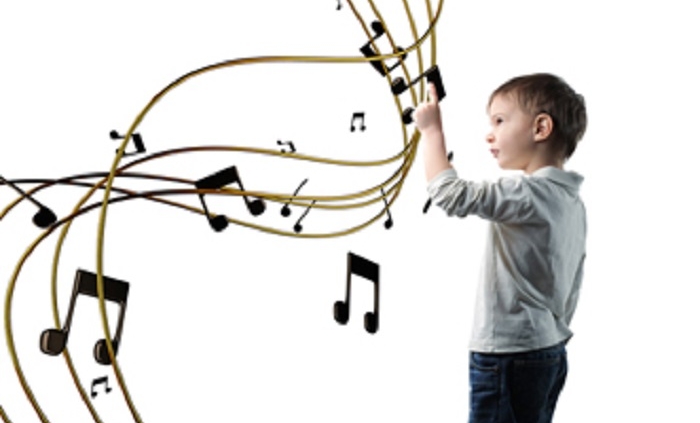Nearly everyone enjoys music, whether listening to it, singing or playing an instrument. It is a universal language which most people can understand and appreciate. Despite this wide interest, however, many schools are having to cut down on their music education programmes in order to make more time in the curriculum for (so-called) ‘core’ subjects. Whilst we have enormous sympathy for the ever-increasing pressures on teachers and education budgets, we believe this is a mistake. Educational authorities reducing their musical offerings in the weekly timetable are not only withdrawing from children access to an enjoyable subject but also one which can enrich their lives and education far beyond the classroom.
There are so many benefits of including a high-quality musical educational programme in the school curriculum which have been scientifically proven. Each of them has cross-over to other academic subjects, and also to life outside of school, giving children confidence, listening skills and resilience – all lessons which can only help them achieve success in an increasingly tough world.
When you start to delve into the research papers on the subject it only increases the sense of woe at a situation where teachers are finding it harder to offer their pupils the time to learn and appreciate music of a high calibre. Here is a fascinating selection of just some of the scientific findings:
- Musical training helps develop language and reasoning: An early musical training will develop the areas of the brain related to language and reasoning. The left side of the brain is known to become better developed with music, and songs can help imprint information on young minds. Learning a musical instrument can improve how the brain understands human language, helping students to learn a second language. It also helps with pattern recognition, which aids mathematical and scientific skills.
- A mastery of memorisation and discipline: Even when performing with sheet music, student musicians are constantly using their memory to perform. Developing memory skills will serve students well in all other areas of education and beyond. Learning to play an instrument can also be hard and children must learn a valuable lesson in discipline. They will have to set time aside to practise and rise to the challenge of learning with discipline.
- Students learn to improve their work: Learning music promotes craftsmanship, and students learn to want to create good work instead of mediocre work, constantly striving for better.
- Increased coordination: Playing a musical instrument can improve a child’s hand-eye coordination, in much the same way as playing sports does. Children’s fine motor skills, however, can also be significantly improved when playing a musical instrument, with the obvious knock-on benefits to their writing and manual/craft skills.
- Teaching responsible risk-taking and dealing with anxiety: Music encourages students to try something new and to develop confidence as they master singing or playing an instrument. Performing a musical piece in front of an audience can cause fear and anxiety; it requires real courage! Pushing through their fear to perform helps children to deal with anxiety with a level head to achieve a positive outcome, bringing a sense of achievement and good self-esteem. Sometimes in order to achieve potential one needs to learn not to be frightened of fear!
- Teaching collaboration, self-esteem and goal-setting: When playing instruments in a group or singing in a choir, students are working towards a common goal and they learn how important it is to appreciate everyone’s ‘voice’ and interests. This joint effort, where each student’s contribution is vital to the end result, creates not only an understanding of the importance of listening to others and appreciating their contributions but also a sense of secure acceptance of their own contribution that is critical to the self-esteem of each individual. This is where, for many, the understanding of the importance of teamwork starts.
Learning to play pieces of music on a new instrument can be a challenging but achievable goal. Students who master even the smallest goal in music will be able to feel proud of their achievement. Goal setting becomes an important core part of making positive progress in all areas of life. - Better test results: Students who receive a high-quality musical education in schools perform better in standardised tests than students who don’t have an opportunity to engage with music. In real terms, students who benefit from superior music education in school have been found to score around 22% higher in language and 20% higher in maths testing compared to schools with less access to a high-quality musical programme.
- Fine-tuned listening skills: Music involves listening to yourself as well as to others. It also requires listening to more than one thing at a time – tempo, harmony, dynamics etc. Children who have received a high-quality musical education are better able to detect meaningful, information-bearing elements in sounds, than those who have not. Students who practise music have better auditory attention and can pick out predictable patterns from surrounding noise.
- Music can be relaxing and offer an emotional outlet: Students can fight stress by learning to play or to listen to music. Soothing music is especially helpful in helping children relax. Listening to music evokes feelings in children which they may find hard to express verbally – expressing these through playing a musical instrument or singing provides a vital outlet where words just won’t do.
- Preparation for the creative economy: An artistic education develops the whole brain and develops a child’s imagination and curiosity. The world is ever-changing, and with mechanisation and technology taking over more and more tasks in the workplace, investing in a creative education can better prepare students for the 21st century workforce. The new economy has created more artistic careers, and these jobs may grow faster than others in the future. An artistic or creative education helps with problem solving skills in terms of learning to think outside the box and appreciating that there may be more than one right answer.
The aim of education is to prepare children and young people for independent life outside of school and the home. Which of the above skills doesn’t provide a vital contribution to this process?!
See our next blog post to read about how London Festival Opera has taken steps to help schools to bring high calibre music to their students from an early age….

